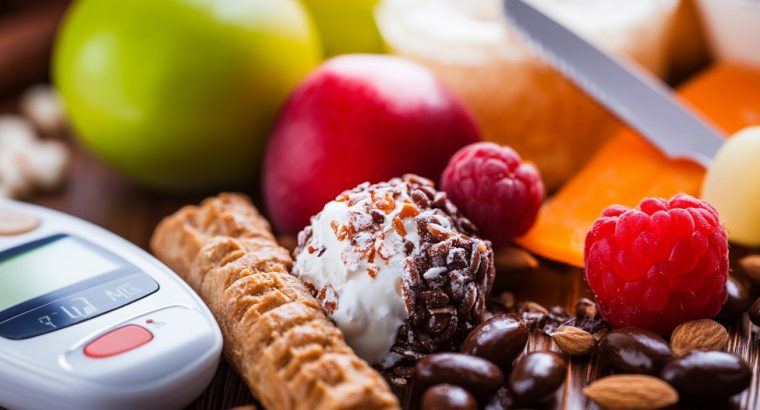Managing Food Cravings as a Diabetic
Managing Food Cravings as a Diabetic
Living with diabetes requires a balanced approach to nutrition and lifestyle, which often includes managing food cravings. Food cravings, particularly for sugar-rich and high-carb snacks, can pose significant challenges for individuals with diabetes. However, with the right strategies and mindset, managing these cravings is possible and can vastly improve overall health. This article explores different methods, tips, and insights into managing food cravings effectively as a diabetic.
Understanding Food Cravings
First, it’s essential to understand what food cravings are and why they occur. Food cravings are an intense desire for a specific type of food, often high in sugar, fat, or carbohydrates. These cravings can arise due to various factors such as hormonal changes, emotional states, nutritional deficits, or simply habit.
For diabetics, managing these cravings is crucial because succumbing to them can lead to spikes in blood sugar levels, thereby complicating diabetes management. It’s essential to address the root causes of these cravings to effectively manage them.
The Science Behind Cravings in Diabetics
Diabetes affects how your body processes glucose, leading to fluctuating blood sugar levels that can intensify feelings of hunger and cravings. When glucose levels drop, your body signals a need for quick energy, leading to cravings for sugary or high-carb foods. Additionally, insulin resistance — common in Type 2 diabetes — can alter hormone levels that regulate hunger, further complicating these cravings.
Role of Insulin
Insulin plays a critical role in how your body handles food cravings. It helps regulate blood sugar levels by facilitating glucose absorption into cells. In diabetics, especially those with type 2 diabetes, insulin resistance means that glucose isn’t used efficiently, resulting in higher blood sugar levels and potentially increased hunger and cravings.
Hormonal Imbalances
Hormones like leptin and ghrelin also impact appetite and cravings. Leptin helps regulate energy balance by inhibiting hunger, while ghrelin stimulates appetite. Diabetics might experience disruptions in these hormonal balances, leading to enhanced cravings and a challenge in regulating food intake.
Practical Strategies to Manage Cravings
Here are some effective strategies to help manage food cravings if you are living with diabetes:
1. Mindful Eating
Mindful eating involves paying full attention to the eating experience. This can help you recognize cues of hunger and fullness, differentiate between physical hunger and cravings, and avoid impulsive eating. When eating, focus on the taste, texture, and aroma of your food. Eating slowly and mindfully can lead to better control over cravings.
2. Balanced Diet
Adopting a balanced diet that includes all essential nutrients can lessen cravings. Ensure every meal contains a mix of protein, healthy fats, and fiber to promote satiety and keep blood sugar levels stable.
- Proteins: Foods like lean meats, tofu, lentils, and eggs.
- Healthy Fats: Avocados, nuts, seeds, and olive oil.
- Fiber: Vegetables, whole grains, legumes, and fruits in moderation.
3. Regular Meals
Avoid skipping meals as it can lead to quick blood sugar drops, resulting in strong cravings. Plan for 3 balanced meals and 1-2 snacks throughout the day to maintain energy levels and blood sugar stability.
4. Hydration
Sometimes, thirst can be mistaken for hunger. Staying well-hydrated can help reduce unnecessary cravings. Make sure to drink plenty of water throughout the day and consider herbal teas as an option.
5. Prioritize Sleep
Adequate sleep is essential for managing hunger hormones. Lack of sleep disrupts ghrelin and leptin levels, increasing hunger and cravings. Aim for 7-9 hours of quality sleep per night to keep these hormones in check.
6. Stress Management
Stress can trigger or exacerbate food cravings. Techniques such as meditation, yoga, or deep-breathing exercises can help reduce stress levels. Engaging in regular physical activity can also aid stress relief while helping manage weight and improve insulin sensitivity.
7. Smart Snacking
Instead of reaching for sweets, choose snacks that offer nutritional benefits. Consider options like:
- Nuts and seeds
- Yogurt with berries
- Carrot sticks with hummus
- A small portion of dark chocolate
8. Plan Ahead
Having healthy snacks available can help manage cravings at times when unhealthy options might be more tempting. Prepare a week’s worth of snacks in advance. This strategy not only aids in reducing cravings but also ensures that you have quick, diabetes-friendly options on hand.
9. Herbal Supplements
Certain herbal supplements and teas, such as cinnamon or fenugreek, might help regulate blood sugar levels. However, they should be used under the guidance of a healthcare professional, especially when managing diabetes.
Emotional and Psychological Support
Managing cravings is not only a physical challenge but an emotional one as well. It can be helpful to seek support from friends, family, or support groups who understand the challenges of living with diabetes.
Professional Guidance
- Nutritionist/Dietitian: Work with a healthcare professional to create a tailored eating plan that helps manage diabetes and reduce cravings.
- Therapist: Sometimes cravings can be tied to emotional eating. Therapy can provide strategies to improve emotional regulation.
Conclusion
While managing food cravings as a diabetic can be challenging, it is not impossible. By understanding the underlying mechanisms behind cravings and employing practical strategies like mindful eating, maintaining a balanced diet, regular exercise, and managing stress, you can take control of your cravings and, consequently, your diabetes management.
Remember, cravings are a normal part of life, and having them doesn’t constitute failure. The goal is to manage, rather than completely eliminate them. With determination, support, and proper strategies, diabetics can maintain balanced diets while occasionally indulging in their favorite treats smartly and responsibly. It’s a journey that requires patience and persistence, fostering not just better diabetes management, but an overall healthier lifestyle.

